Turn and Smile Prime Time, June 8, 2025: The Last of Us, The Rehearsal, Overcompensating
Let's rehearse the way we'll overcompensate during the apocalypse.
Happy Thursday Friday Saturday Sunday Sofa Taters!
Thank you for your patience for this week’s Thursday Prime Time as we turn this week into a Sunday T&S Double Feature! Look out for our normal Sunday Prime Time later tonight!
In this week’s Prime Time, we’re knocking out reviews for shows from our queue that have been suggested, and some that we can’t ignore anymore.
There’s been almost constant chatter about The Last of Us since its original debut in 2023. From the unjustified hate from whiney little culture warriors who need a hobby to those shovelling love on it, we’ve decided to give the opening sequence a gander to add our voice to the discourse, too.
The Rehearsal, also on HBO, has taken audiences in and enamoured them to the point where it’s impossible to ignore anymore. We’re checking out an episode that some are calling the “most viscerally absurd thing ever to be aired on television”.
Plus, we’ve dived deep into the eminently relatable Prime Video series Overcompensating.
Please note, especially due to the sheer unavoidability of some of these shows (*cough* Last of Us *cough*), we will have assumed you either have watched these, or know enough spoilers already to not get mad at us in particular for leaking key plot details of shows. Spoilers are ahead.
Before joining us in the fun-filled ride into your favourite world of make-believe, television, please subscribe to Turn and Smile! We are almost at 100 subscribers, and to commemorate the milestone, we will be doing an entire She-Ra and the Princess of Power Prime Time review! If you want to know our theories on the power of Grayskull, click on the button below and subscribe!
Table Of Contents
OPENING: The Last of Us
Summary
The visuals of this sequence follow the path of a fungus stretching and growing along foliage, where it ultimately grows into the figures of the series protagonists, Joel and Ellie, except for the last episode, where there is a slight but significant alteration to that final tableau. The series itself is a fairly bog-standard post-apocalyptic zombie story, except that instead of being zombies, the undead are infected with a specially evolved parasitic fungus, represented in this opening sequence.
Sound 🌟🌟🌟🌟🌟
Mason’s take: The soundtrack of this show, and the theme song especially, will sound very familiar to anyone who has played the game this show is based on. The same score composed by Argentinian icon Gustavo Santaolalla is perfectly utilized here. It seems incredibly fitting with the visuals. The acoustic guitar picking is an apt choice to pair with the creeping and crawling fungus across the screen. Beyond that, it appears to have a calming effect.
Larissa’s take: Apparently, there is far more than meets the eye ear for the sound of this intro. Gustavo Santaolalla utilizes different instruments for different characters on the show, including the Fender VI bass guitar for Joel, and the ronroco for Ellie, with this intro being a fusion of both. Maybe some of you Sofa Taters know wtf a ronroco was before reading this, but I had to do some obsessive research. Apparently, it’s a string instrument that shares a distant ancestor with the guitar. It originates in South America, has 10 strings, and is traditionally made from armadillo shells. Here’s a chart I created to show you the relation of the Rondocaster to the Fender VI bass guitar.
The more I pondered this choice, the more brilliant I thought it was. Joel was born and raised in our world. The sound of the Fender would be registered as iconic to most ears, including Joel’s. But Ellie was born and raised in a different world, one that shares a distant relative to the one we know. The familiar-but-strange sound of an armadillo shell string instrument is the perfect metaphor for Ellie, who is creating her own path in a world that has adapted so far away from our own.
Conveyance (of Tone/Theme) 🌟🌟🌟🌟
Mason’s take: On the one hand, the TV show’s producers have their hands tied in the sense that one of the most expected elements of this adaptation is to include the same score. On the other hand, it feels like reminding viewers of the game is a natural impulse. With the series having as many moments of peace as it does, the opening seems to give a nice introduction to what viewers can expect. There are creepy moments, there are peaceful moments. Both coexist here.
Larissa’s Take: I want to specifically zero in on the significance of the two figures, representing Joel and Ellie, moving to one in the very last episode. Joel’s death happened in Episode 2, yet show runner Craig Mazin chose to end Joel’s journey in the intro in Episode 7. I think this is symbolic of when Ellie started making decisions disconnected from Joel, and needing to forge ahead without him. I also think this is a pretty strong clue that Pedro Pascal won’t be returning for Season 3, as his character’s journey is done. Apparently, Catherine O'Hara let a huge detail on next season slip when asked in an interview if she would be returning, saying, "I don't know. Craig [Mazin, showrunner] did say definitely not this next season. It's the Abby story.” I wonder how the introduction will change with that perspective, and if we might see a figure of Abby in this frame instead.
Aesthetic 🌟🌟🌟🌟
Mason’s take: The overgrown flora imagery is very apt. It’s like Chernobyl without the deadly radiation.
Larissa’s take: The opening sequence is fairly simple, showing the fungi spreading, and appearing in certain vignettes like cities or a map of the United States. Some people over on Reddit had some theories as to what clues about the cordyceps spread the intro might contain. Check out the map below - I think it’s interesting what sections of the US have the highest infection levels, and what environmental factors could have caused this!
Innovation 🌟🌟🌟🌟
Larissa’s take: It’s bold in its subtlety. It sets up the emotionally fraught dystopian landscape in an elegant way.
Mason’s take: For a long time, thanks to… We’ll say “passionate”… directors like German-Canadian Uwe Boll, it had been thought that a good cinematic adaptation of a video game was impossible. If this show has done anything, it’s prove that video games can make great television, and women-hating gamers will complain about anything if you give them the chance.
Overall Opening Rating 🌟🌟🌟🌟
EPISODE: The Rehearsal, S2, E3, “Pilot's Code”
Summary: Canadian (Vancouver specifically!!) icon Nathan Fielder brings his uniquely awkward aesthetic to his newest TV project, where he helps individuals and groups prepare and rehearse for big moments in their lives. In this episode, specifically, Nathan helps himself learn how to be more like legendary pilot, Sully Sullenberger, who you might remember being the guy Tom Hanks played in the movie where he landed a plane in the Hudson River.
Plot/ Drama 🌟🌟🌟🌟🌟
Mason’s take: Nathan Fielder’s usual schtick in this comedy docuseries is to help people rehearse for pivotal or important events. In Season 1, as an example, he helped someone come clean to his friend about an accidental misrepresentation of his educational background. These situations usually have mixed results and don’t always go as one would hope. For Season 2, Fielder has decided to use the vast resources of HBO (the network that produces the show) to try to improve the aviation industry. After reviewing transcripts of crashes, pilots seem to have a communication problem. So this season, everything comes back to this issue, and Fielder continues to explore ways to help pilots. In this episode, he explores the experiences that American hero Sully Sullenberger had throughout his life to see if something in his life could help his cause.
When I was a teenager, I became a huge fan of Canadian funny human Jim Carry, which led to rabid fandom for Andy Kaufman through the movie Man on the Moon. Kaufman specialized in live shows that deliberately sought to make the audience uncomfortable and would set out to defy expectations. I bring him up because Season 2 of The Rehearsal is straight-up some Kaufman-esque stuff. It’s a comedy show where the creator of the show sees the genre as a possible hurdle to their ultimate goal.
Larissa’s take: Did the 23-second chorus of “Bring Me Life” by Evanescence inspire Sully Sullenberger during the critical moments in that dangerous Hudson River landing? I am now absolutely convinced of this fact.
Did Sully himself tell us that he was listening to this banger at this moment? No. But did Nathan Fielder use every scientific process at his disposal to get to the bottom of this crisis in aviation, including dressing in a diaper and getting people on stilts to pretend to be your parents, masturbating in a plane, and having couples fights in front of genetic clones of Yorkshire terrier dogs. You know, the more I describe this, the more I think maybe this wasn’t about solving issues in aviation, but using HBO money to act out fetishes. Either way, funny as hell.
Personalities 🌟🌟🌟🌟🌟
Mason’s take: The question surrounding Fielder is, “Is he autistic? Or is that his real personality?” This is an uncomfortable set of questions because, whether or not those who ask intend it, what is being asked is what’s wrong with this guy? On the one hand, if he is autistic, then nothing is wrong with him, and he’s doing what we’re all trying to do: our best. On the other hand, should he not be autistic, there are lots of different life experiences that could turn an average child into an awkward man (some of them more traumatic than others) and the fact remains that you shouldn’t need seemingly neurodivergent people to disclose their diagnosis to justify respect for their personhood. In this case, what we know is that he is an entertaining person, creating comedy out of awkward situations. We don’t need to know more than this is his style of comedy. The fact that he’s choosing to present himself as he does and that people are pegging it as neurodivergent says more about others’ perception of autism and neurodiversity than it says about him or any actual realities of neurodiversity.
Larissa’s take: Nathan has a talent for going on an extremely unnecessary deep dive on an unnecessary topic. The fact that the rest of the cast of the show, including all the actors he employs (for example, those pretending to be his parents while on stilts), are taking it all so seriously makes it side-splittingly funny. The commitment to the bit is unhinged. This episode talked about pilots and the unique personalities they have in comparison with other professionals. What makes one stand out as a hero? Was it his genetics? His upbringing? His first sexual encounter in a plane? Or was it his love of music? Nathan could have interviewed subject matter experts for talking head interviews, shown us brain scans, and schematics of airplanes. Instead, he got genetic clones, lived out an entire childhood in as close to a re-created reality as possible and connected communication transmission timelines of black-box recordings to chorus times of songs that Sully most likely was listening to during that fateful moment. Is Nathan Fielder insane or a comedic genius? Yes.
Aesthetic 🌟🌟🌟🌟
Mason’s take: I honestly don’t know what to say about the aesthetic of this show generally, and this episode specifically. Is it funny? Yes. Am I uncomfortable? Also yes. After jumping into the season at Episode 3, I thought it might be fairer to go to the beginning of the season to see if there was anything that might add to it, and there was. Fielder is exposing a fatal flaw in aviation, and it makes me very uncomfortable (in between the laughs).
Larissa’s take: John Oliver in Last Week Tonight only dreams of the unhinged exploitation of an HBO budget for commitment to comedy like Nathan Fielder in The Rehearsal.
Innovation 🌟🌟🌟🌟🌟
Mason’s take: Nathan Fielder is a once-in-a-generation talent, following in the footsteps of British social commentator Sasha Baron Cohen, Canadian performance artist Tom Green, who made a career for himself online, and American… let’s go with “human(?)” Andy Kaufman, before him. Fielder, with his seemingly neurodivergent stage persona, has updated a Kaufman-esque style of comedy for the docuseries format that the man himself would likely approve of.
Larissa’s take: Okay, we came here to answer the question: “Is this the most viscerally absurd thing ever to be aired on television?” And we can conclusively say, yes, yes, it is.
Overall Rating 🌟🌟🌟🌟🌟
SEASON: Overcompensating, S1
Summary: Created by queer American icon Benito Skinner, this show revolves around a closeted gay college freshman named Benny, who is struggling to live up to the heteronormative expectations imposed on him by his community back home in Iowa. While at college, he starts to contend with the reality of his actual sexuality and comes to terms with who he is and how he’s different from the image he projects to the world.
Story 🌟🌟🌟🌟
Mason’s take: This is an incredibly earnest show. On top of that, though I’m as straight as Connor4Real, this show feels very real. We’ve all known similarly hypermasculine guys who seem to put way too much effort into telling everyone around them that they’re totally not gay, who put the “performance” in “gender performance” like they’re a theatre major. Overcompensating is a well-made, hilarious show that also highlights how often people in college overcompensate. The modern tradition of college is the place where young people go to find themselves, but the question remains: who can you be before you can be yourself? This show expertly attempts to address that question.
Larissa’s take: One thing I noticed about coming-of-age shows is that it’s common for characters to showcase profound acts of selflessness towards each other, especially in the climax and resolution of the story. In Overcompensating, the characters get increasingly tangled in hilarious drama that makes multiple people exclaim at separate times to each other, “You are a really bad friend!” Will they learn? As Benny’s BFF Carmen says to him, “I need you to take your current volume of lying and reduce it by 50%. Can we handle that?” Benny (expectedly) replies, “I’m not sure.”
Characters/Acting Performances 🌟🌟🌟🌟
Mason’s take: It’s rare to see young actors given material that demands so much range from them in every episode of a show. More so when the show in question doesn’t have a gimmick, trope, or genre element that allows actors to phone it in. Overcompensating has a wildly talented cast all around, but I especially want to highlight the under-thirties on the show: Wally Baram, Rish Shah, Owen Thiele, and Lukas Gage. They bring a quiet vulnerability to their parts and a truthiness that we don’t often see from younger performers on TV, except for assault, addiction, cheating, or breakup stories.
Larissa’s take: Hailee Matthews is the most brazenly loveable character on the show, was played by actress Holmes. Hailee chooses not to let a case of mono prevent her from having the best “Halloweekend” ever, or losing her Adderall from getting top marks in her Biochem final. She’s persistently positive, ditsy and slutty by choice, and always knows the gossip about everyone. Apparently, Holmes wasn’t originally set to play the scene-stealing Hailee, auditioning for Benny’s best friend Carmen. The show runners loved Holmes’ audition and put her in the role for Hailee Matthews! A marked departure from her usual androgynous look, Holmes said of taking on the role, "I don't know if it's that my queerness has not let me be able to be in the femme spaces as much, or if it's the fatphobia of this industry, but I was really excited."
Aesthetic 🌟🌟🌟🌟🌟
Mason’s take: Well, let’s say I had some flashbacks to the inside of my locker. I don’t know if it’s because the school they filmed at was largely at the University of Toronto, or that the rest of the production design was simply that good, but I felt almost transported back to a simpler time when bullies tried to stuff me into lockers.
Larissa’s take: I remember watching Remember Me with Robert Pattinson when it first came out in 2010. It was about 9/11, but the audience didn’t know until one of the final frames of the film. The costume and set design purposefully obfuscate the period for the ending twist, making subtle nods to 2001 through flannel, baggy jeans, and “Rachel” haircuts. Overcompensating makes similar choices with subtle nods to being set around 2010. Charlie XCX, while popular, is still playing college campuses, riding off “Boom Clap” fame (the world not yet ready for “Von Dutch” or “Guess” yet). Christina Aguilera’s outfit from “Dirty” is the perfect slutty Halloween costume. It was embarrassing to have a “scene kid” era in high school. I was in university at the same time as these characters, so it’s hard not to laugh at myself for going through similar struggles - the parties, the internships, the missed connections. It feels like such a short time ago that it’s weird to feel nostalgic, but the show plucks at all the right chords. While this section is about aesthetics, I need to give a specific shout-out to the music of the show. I feel like I was singing along to every single song that came on. It’s so good that I felt compelled to share the Spotify playlist with you!
Innovation 🌟🌟🌟🌟🌟
Mason’s take: This, and The Second Best Hospital In The Galaxy, are the most unique and innovative TV narratives I’ve seen so far this year on Prime Video. If this show is any indication, then Benito Skinner has a long career of earnest and heartfelt projects coming.
Larissa’s take: This show manages to successfully be a hybrid of the raunchy frat humour of Superbad and the poignant coming-of-age tale of Love, Simon. Benito Skinner does an excellent job of everything, from tight writing that brings together multiple plotlines seamlessly, interweaving different types of communication from text messages to glances across a room. It’s laugh-out-loud funny at times, and sweet at others. None of the characters seems too perfect or insufferably petty. They are all flawed and relatable, showcasing the skills of the actors, writers, and director. It’s a great show that doesn’t have a lot of comparables on TV right now.

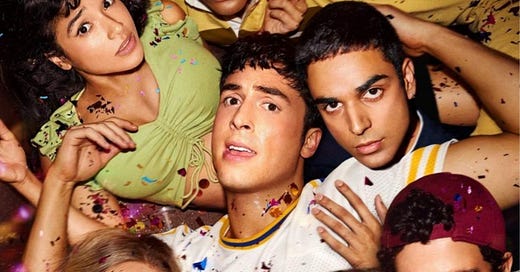


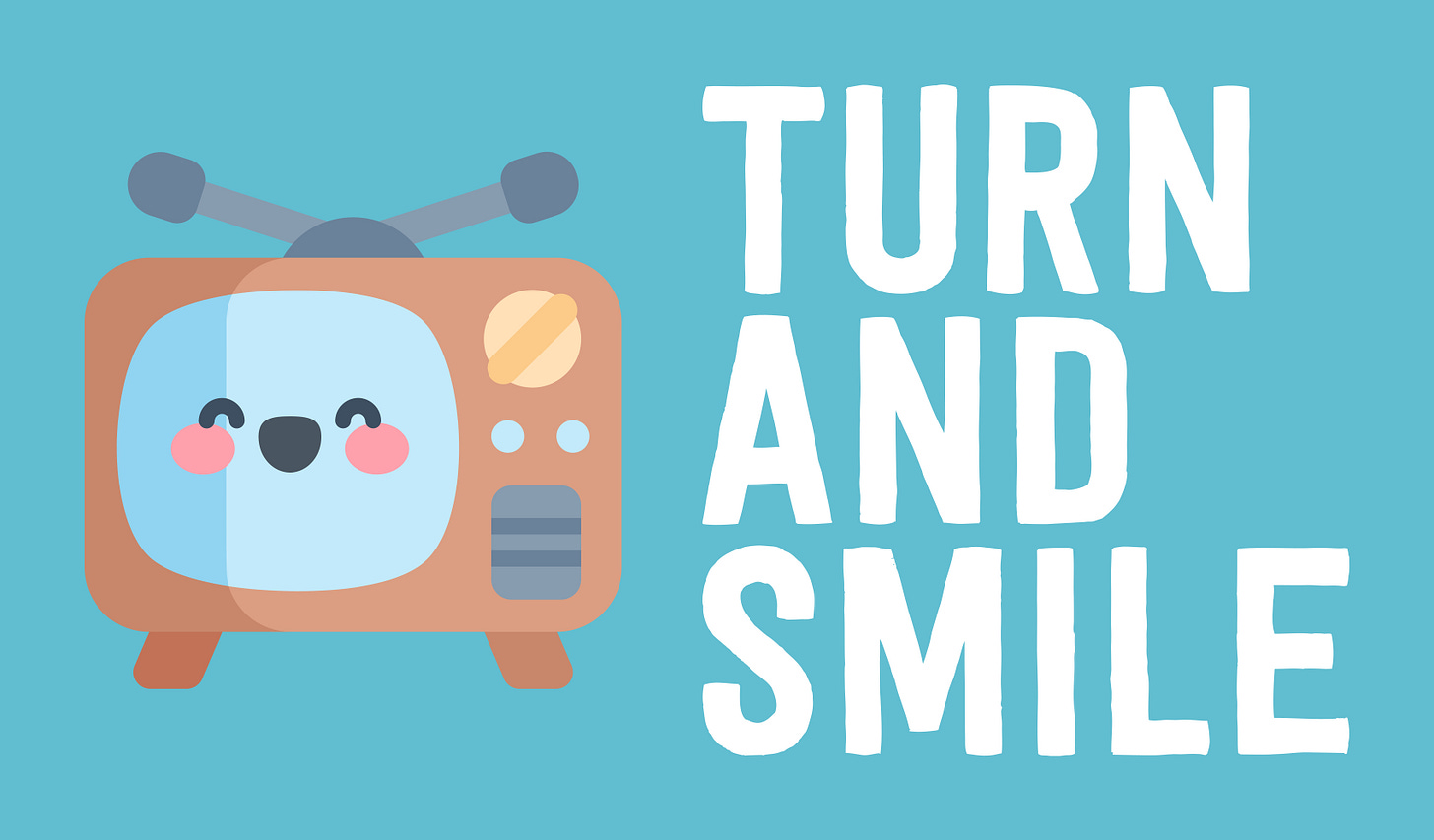

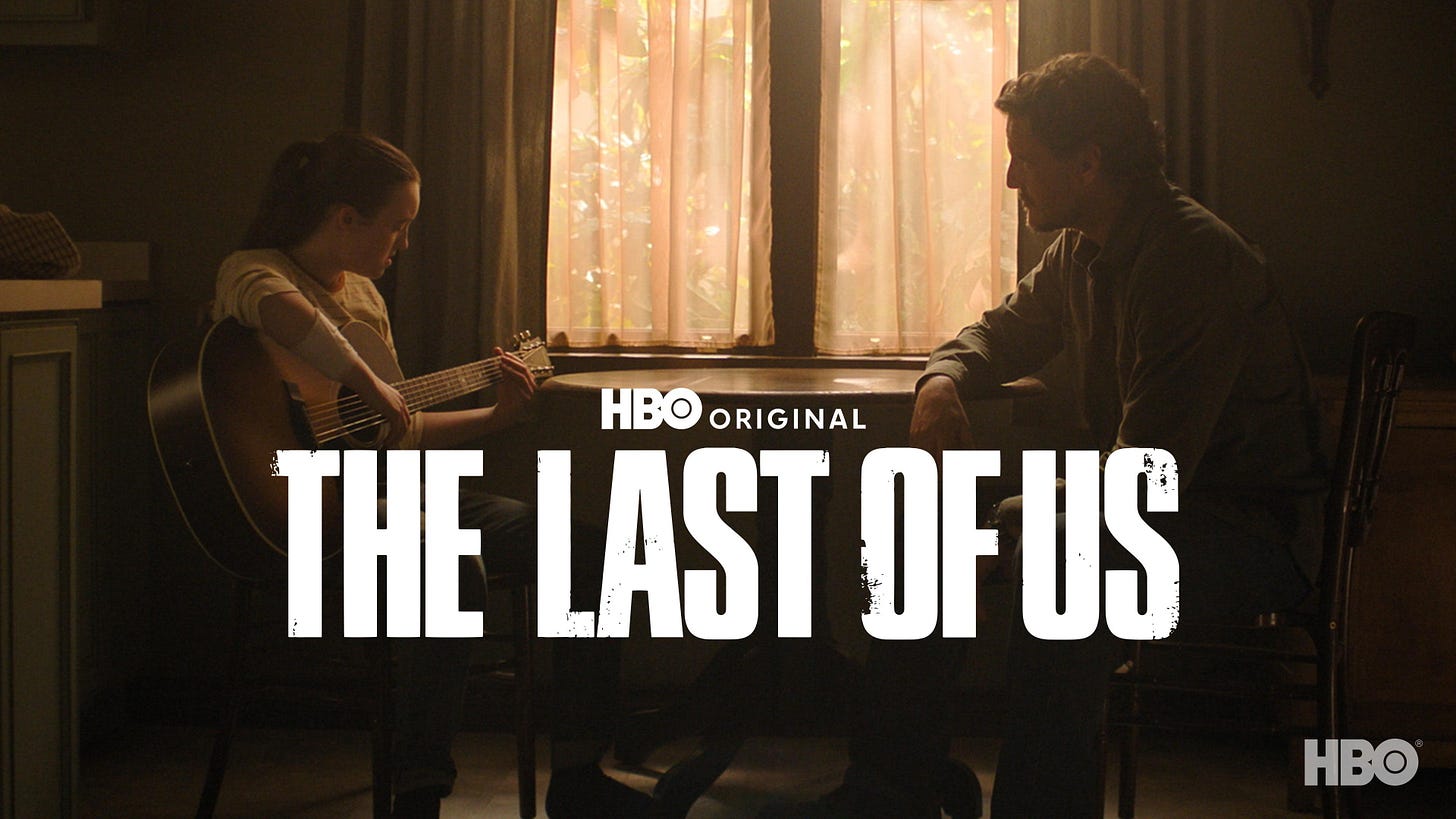


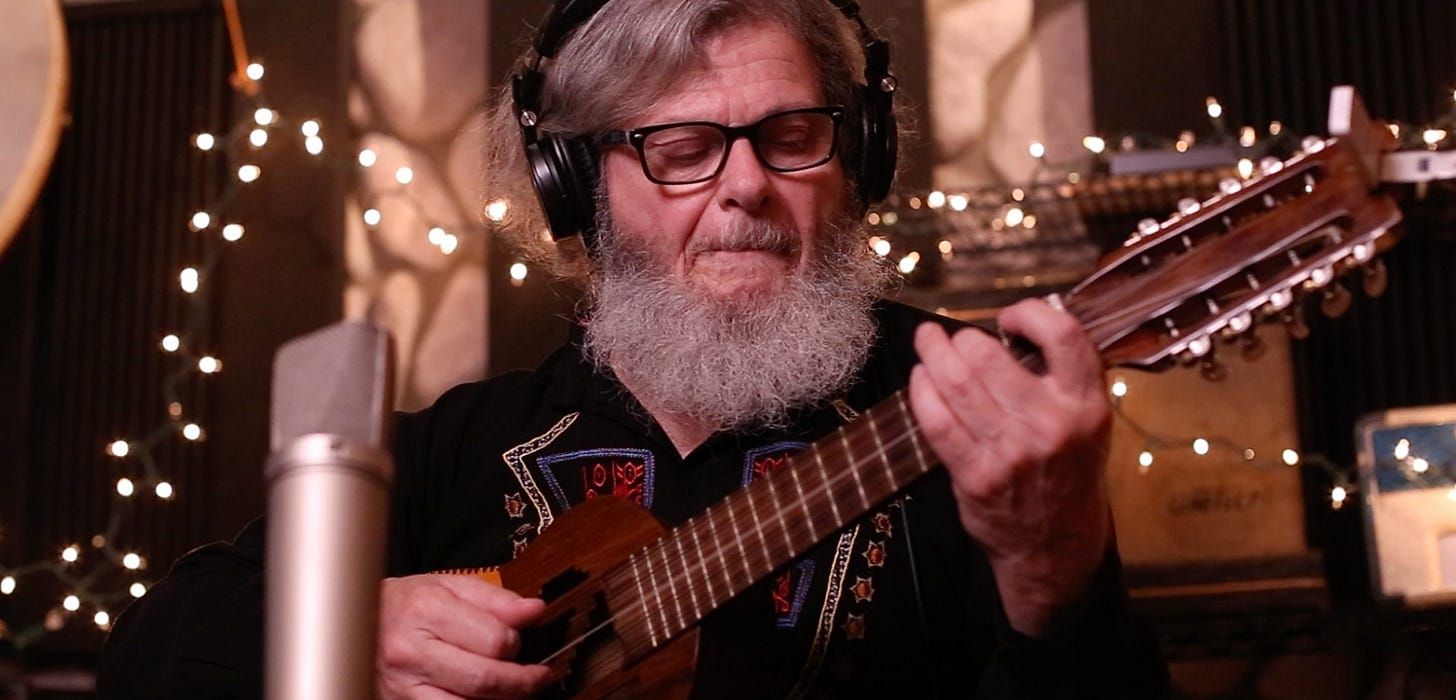
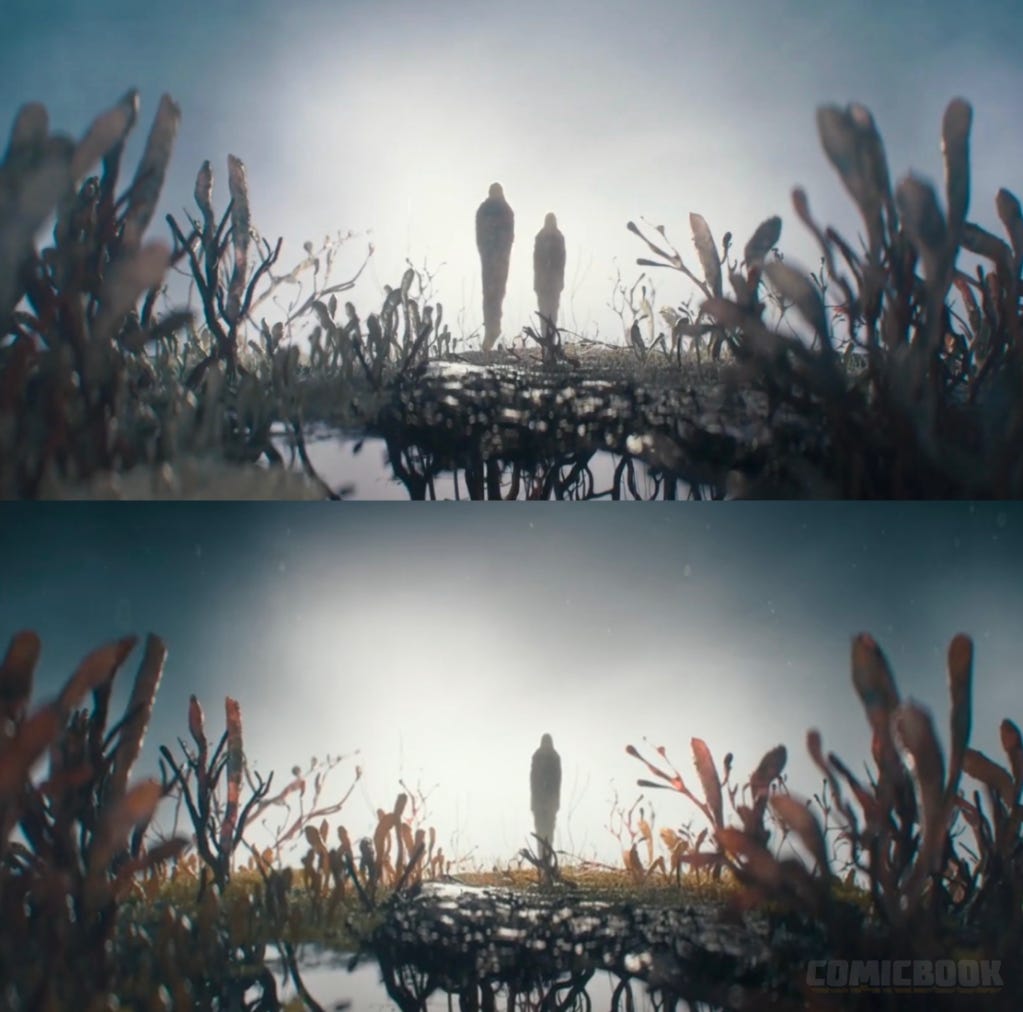


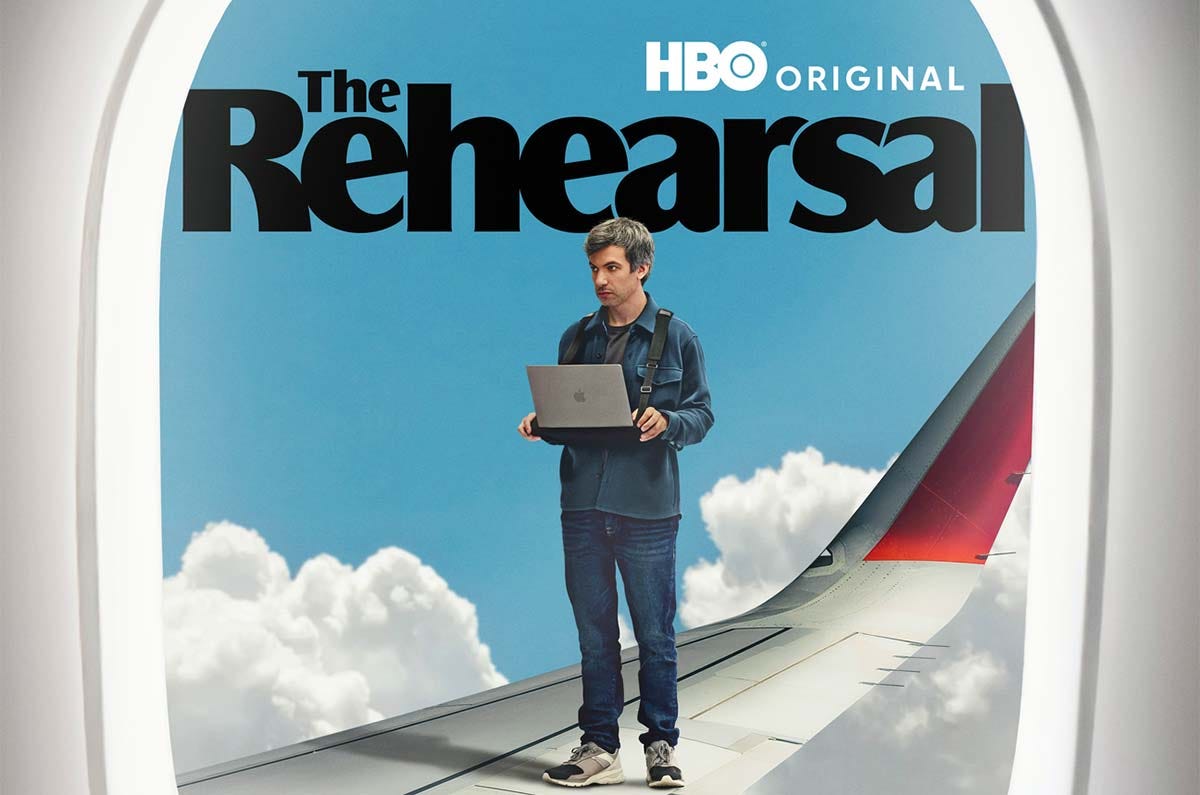

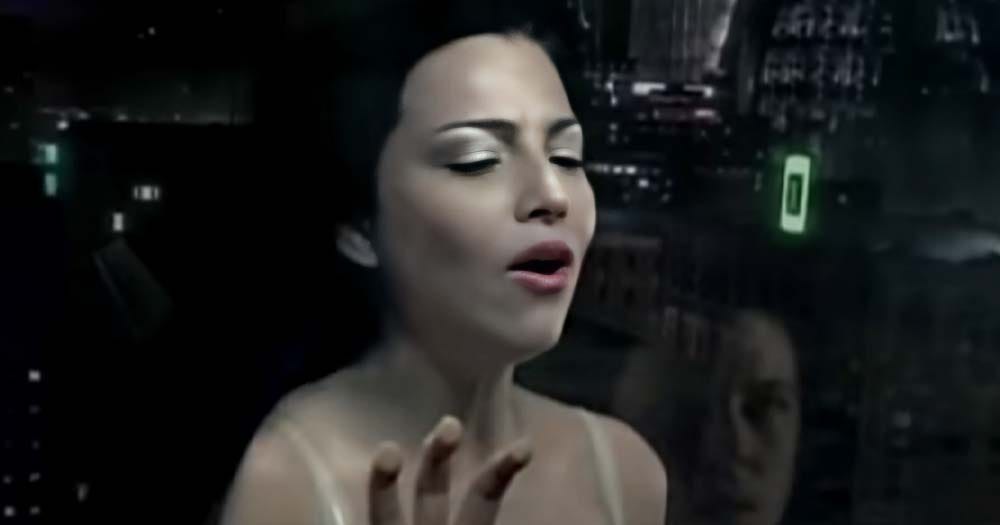
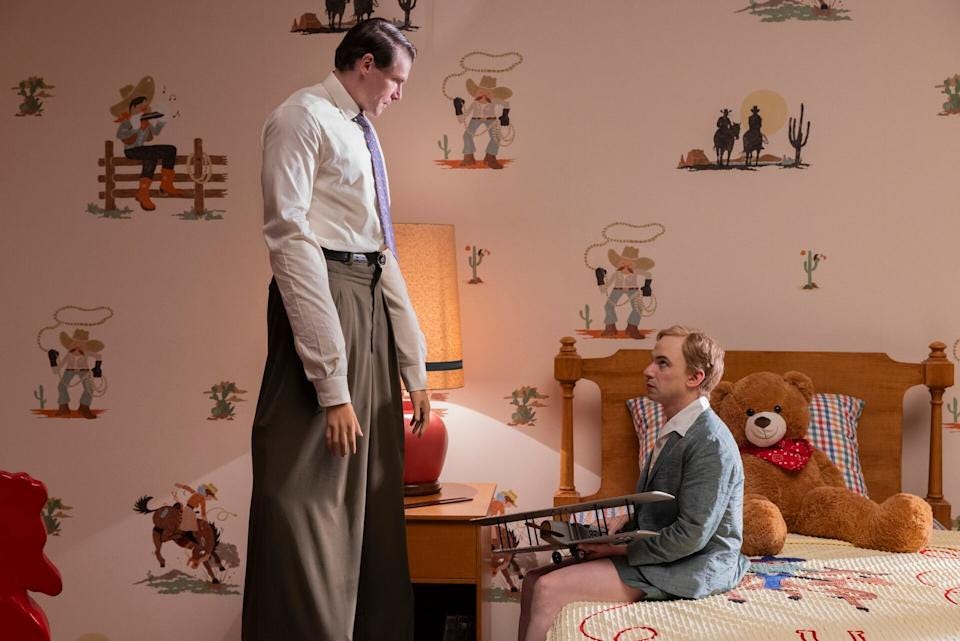
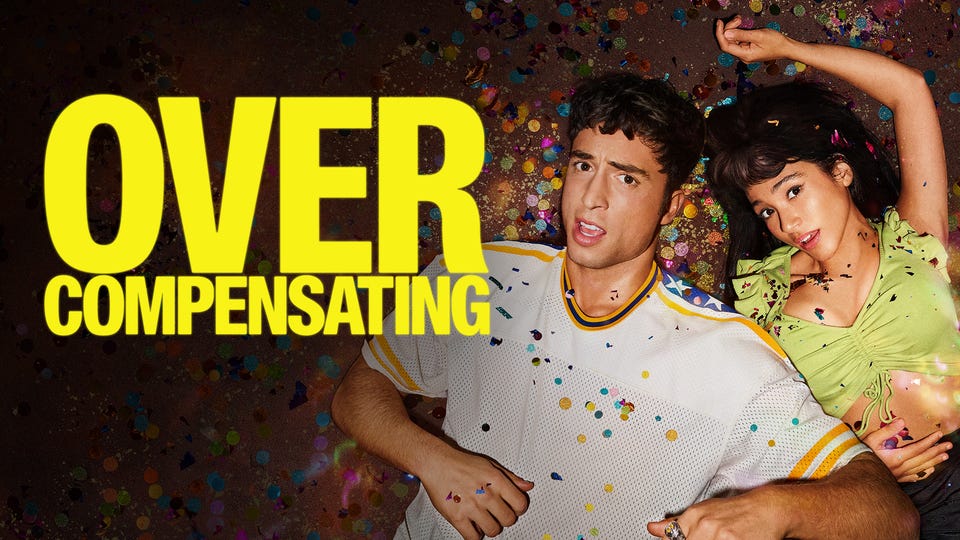
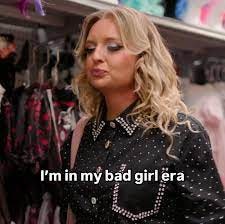

Love your review of Overcompensating. Hailee Matthews' character was hilarious and might have been my favorite too. One question for Mason since you've probably had the most exposure to the bros being bros. Are guys really like this in college? I feel like French dudes were definitely not that dumb at uni. But also I never really hung out in dude only spaces so maybe they were.
I also didn't notice the clusters on The Last of Us map. Super cool detail.